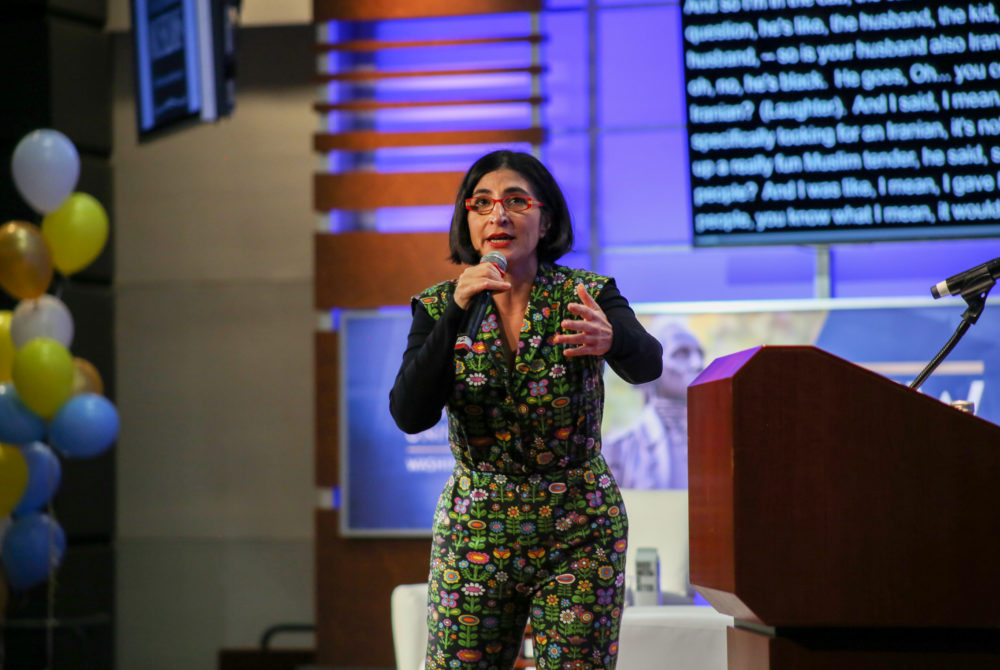Media Credit: Jennifer Igbonoba | Staff Photographer
Comedian, writer and filmmaker Negin Farsad said growing up as an Iranian American in Palm Springs, California, she felt isolated because there weren’t a lot of people with a similar ethnic background living nearby.
A comedian and author talked about her life as an Iranian American woman and her work as a comic, discussing how she uses it to combat Islamophobia at the keynote speech for GW’s annual Diversity Summit Wednesday.
Comedian, writer and filmmaker Negin Farsad said modern American conceptions of ethnic identity are limiting, discussing how people can use comedy as a mechanism to “fight” racism and xenophobia. Jesse J. Holland, an assistant professor of media and public affairs, moderated the event at GW at the Jack Morton Auditorium in the School of Media and Public Affairs building.
Farsad hosts a political comedy podcast named “Fake the Nation,” wrote a book named “How to Make White People Laugh” in 2016 and gave a TED Talk in the same year titled “A highly scientific taxonomy of haters.”
Farsad spoke about being a “hyphenated American,” a label often referring to recently arrived ethnic groups in the United States, tying them to their point of origin, like the label of “Southeast-Asian American,” and how that affects the perception of one’s identity. She said applying labels to different groups can restrict peoples’ views of them, narrowing and stereotyping the imagery in a person’s head.
“Our ability to accept them and understand them is a little limited, right, because our labels are so rigid already,” Farsad said.
Farsad said growing up as an Iranian American in Palm Springs, California, she felt isolated because there weren’t a lot of people with a similar ethnic background living nearby. She said she “wanted” to be Mexican American because of locals’ familiarity with their culture versus her own.
“I pointed out there are so many…
Read the full article here





